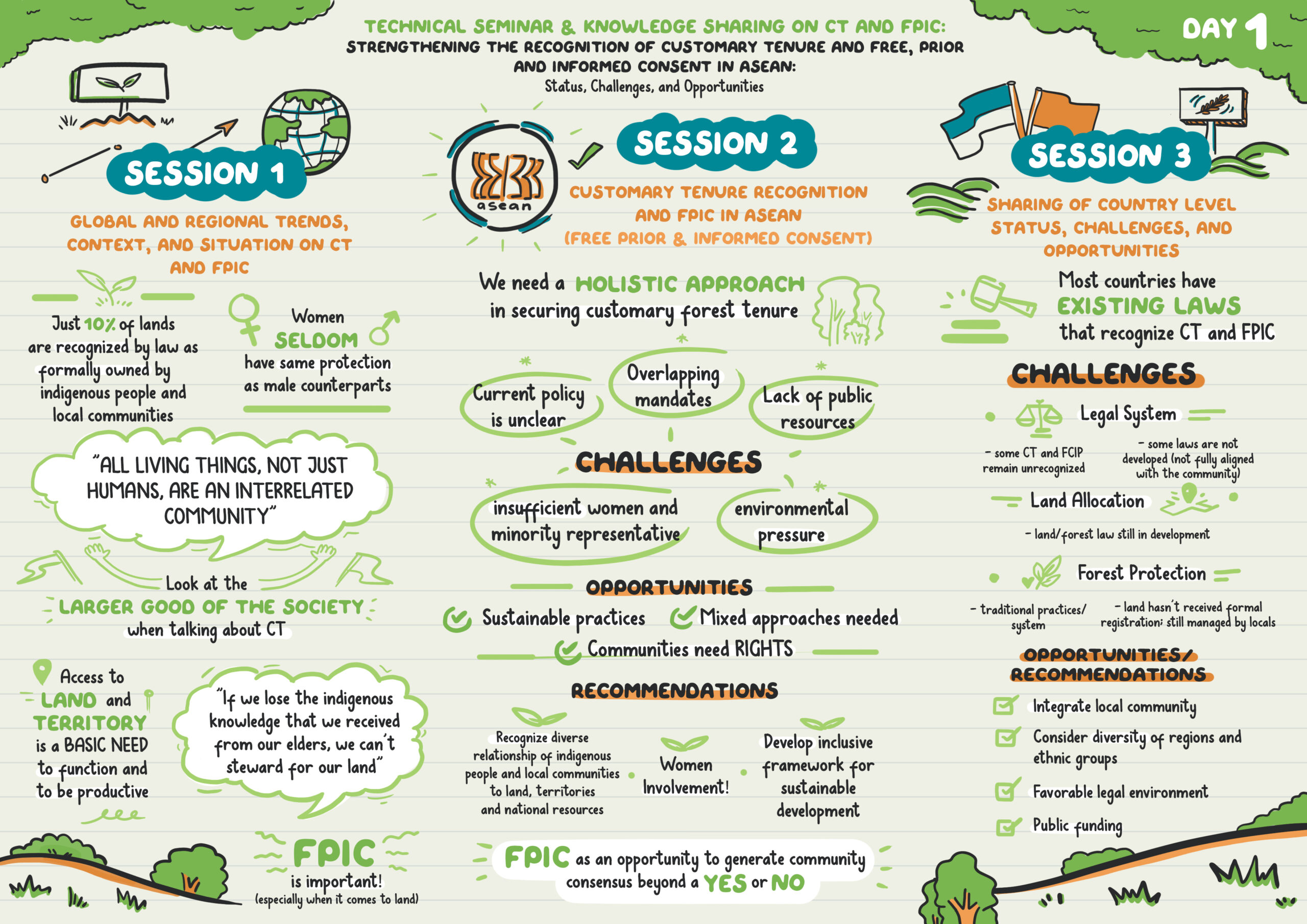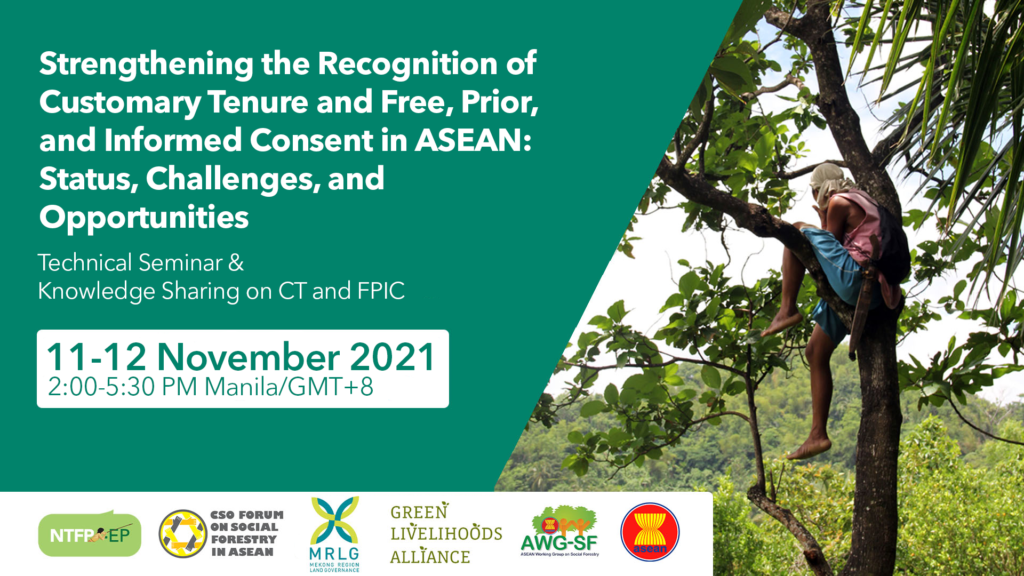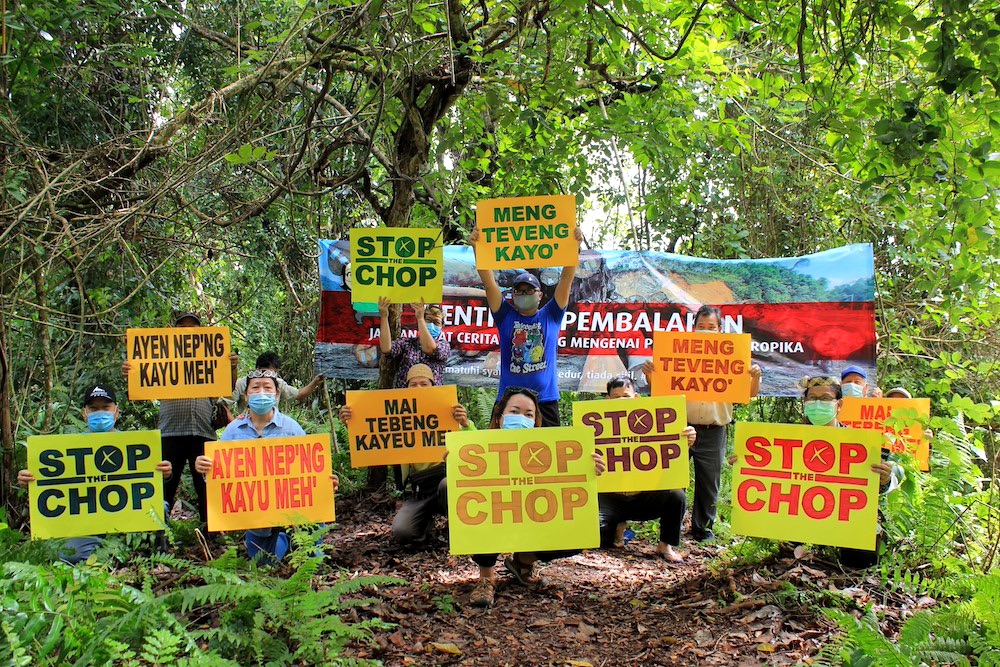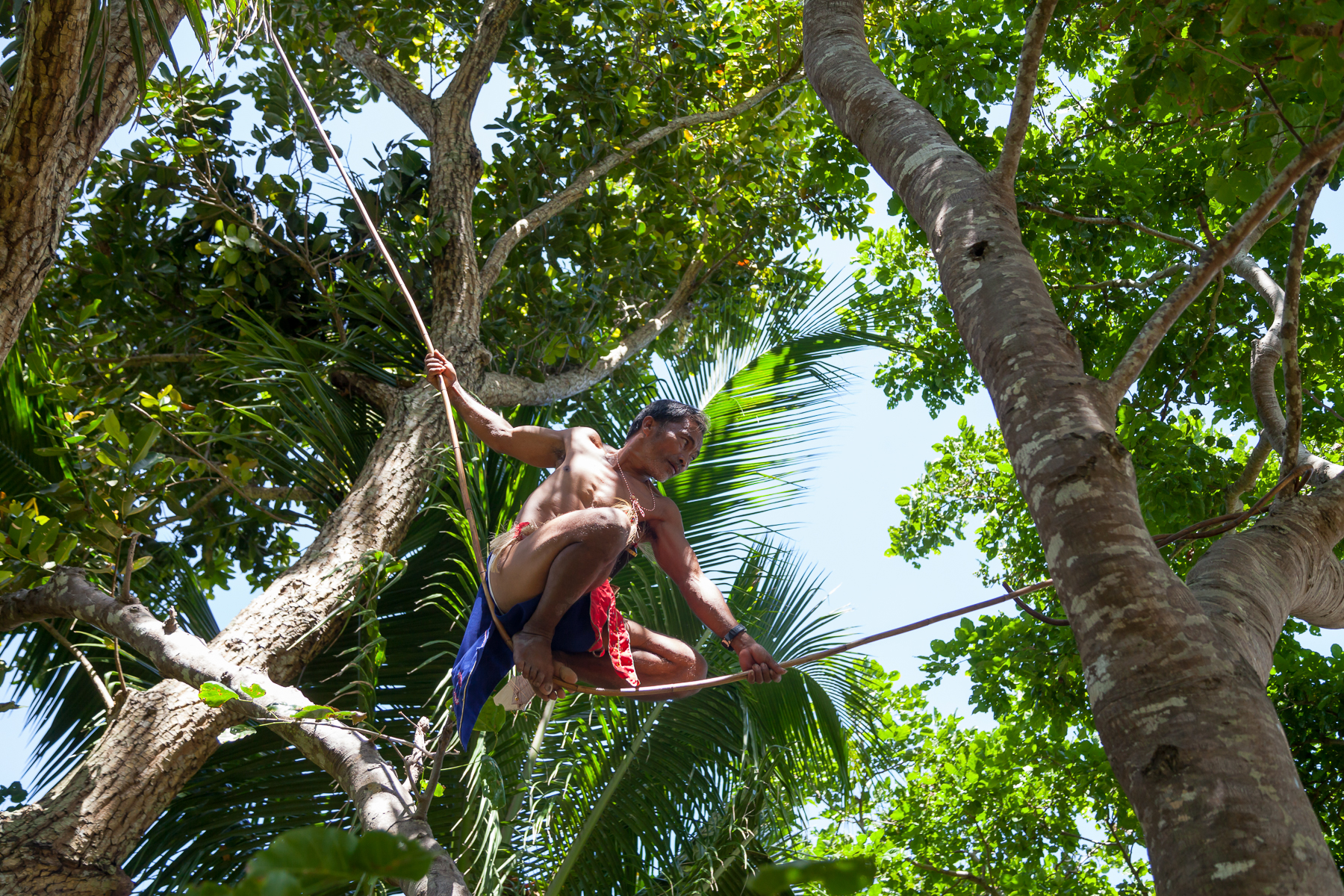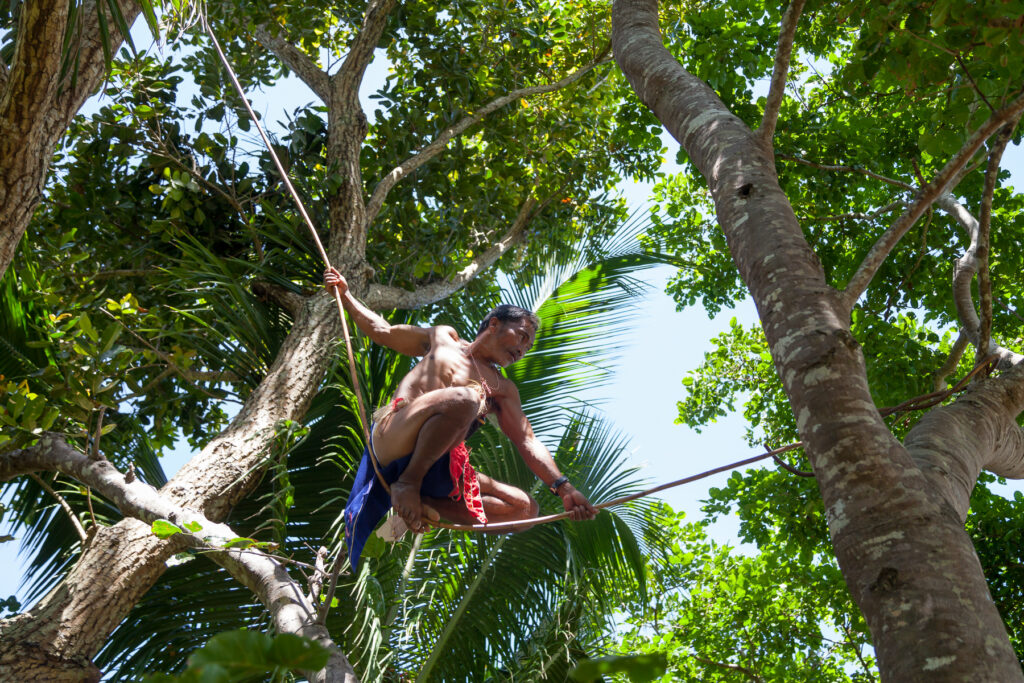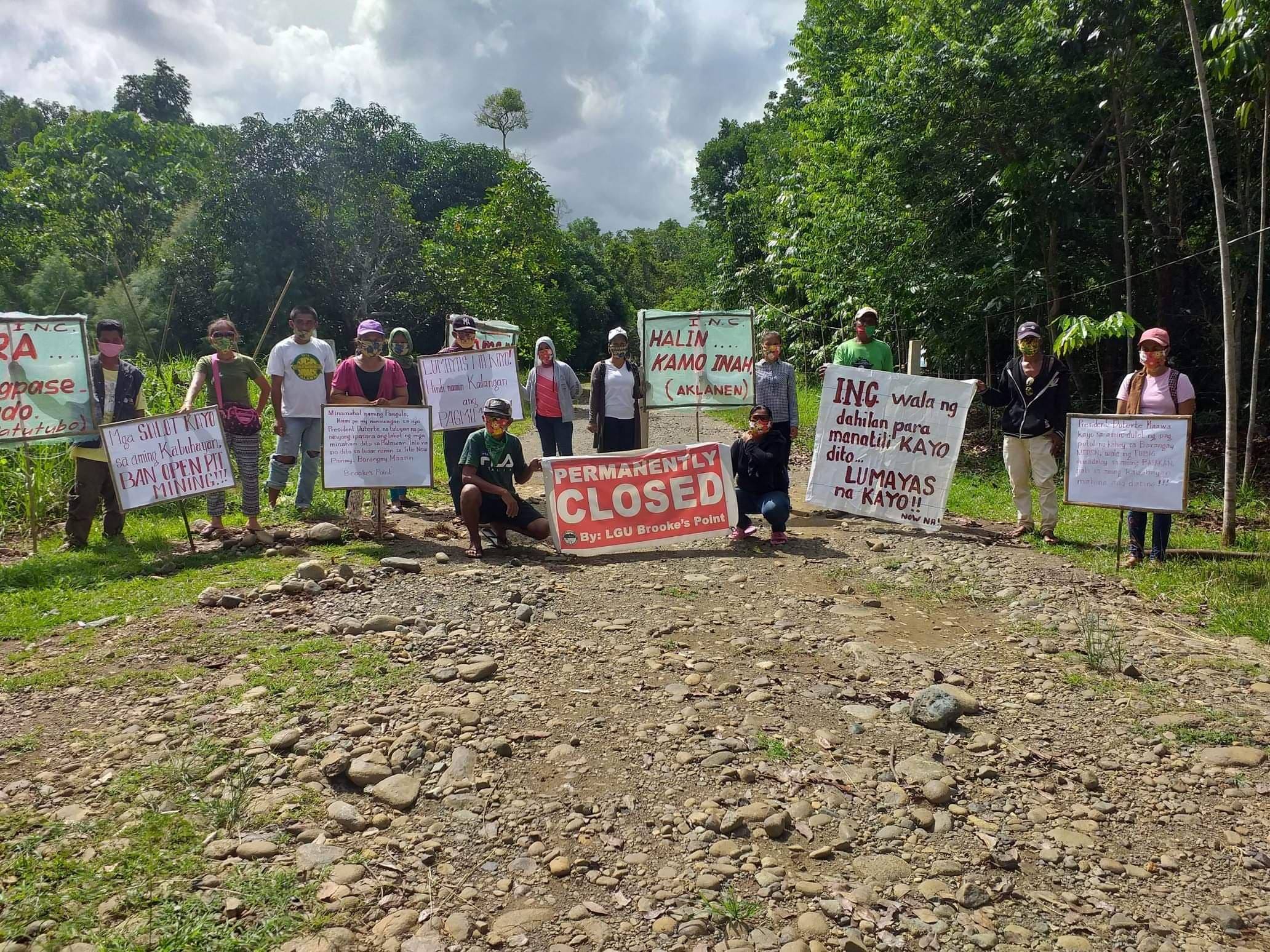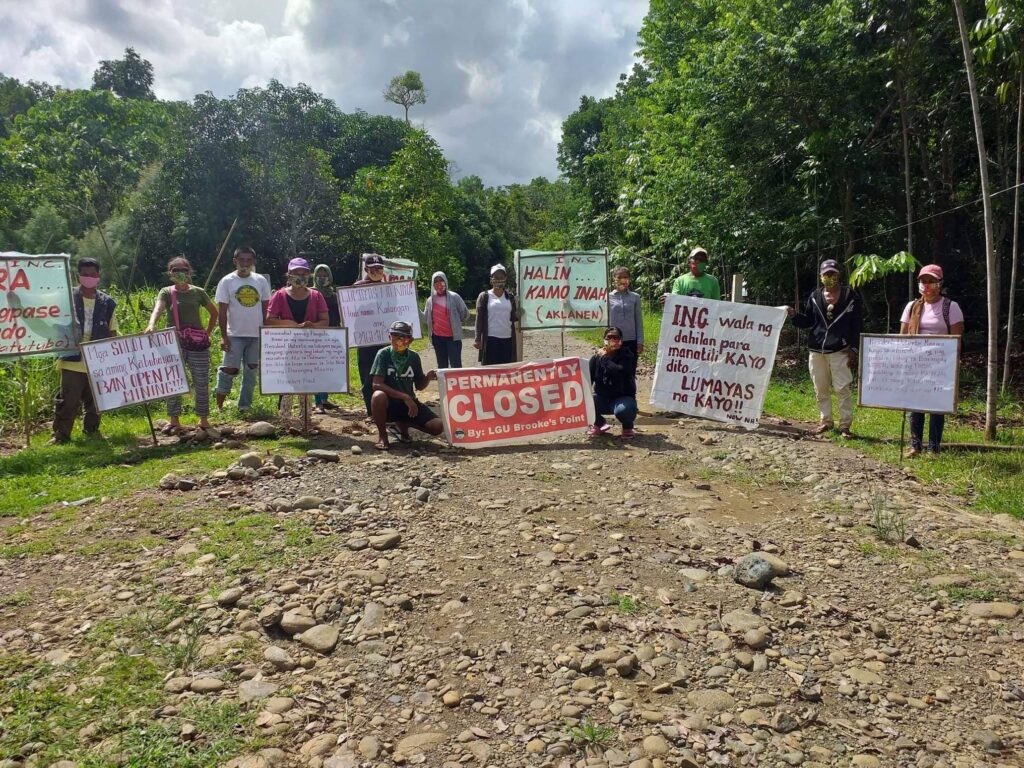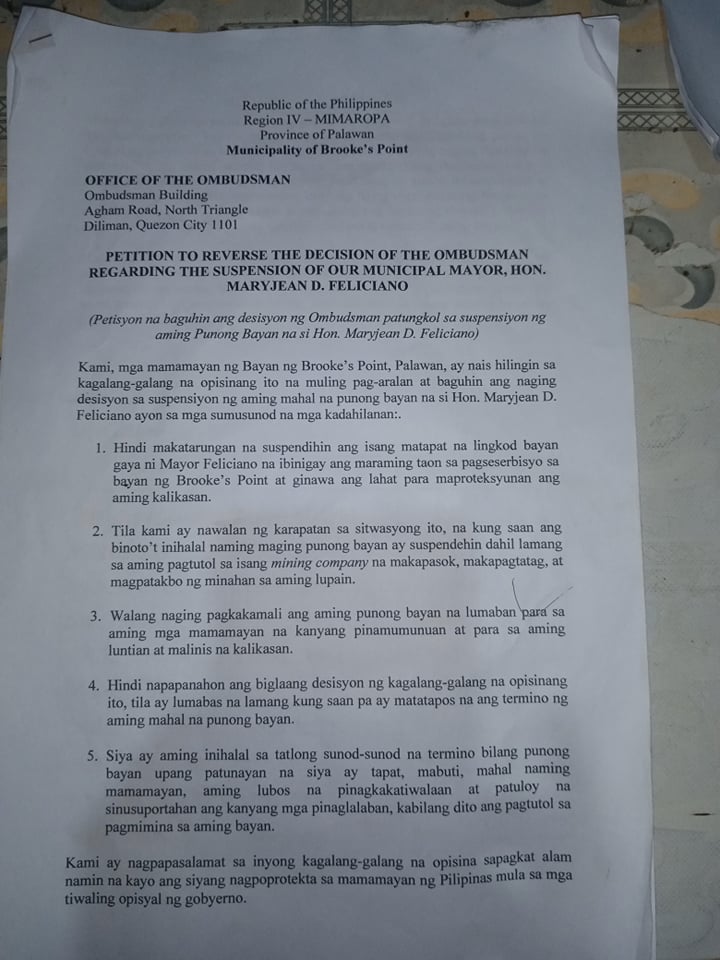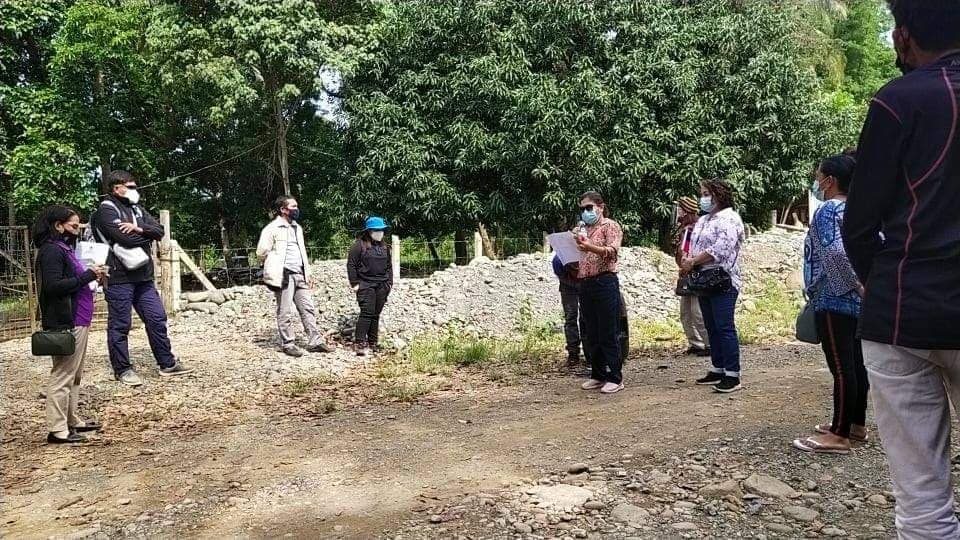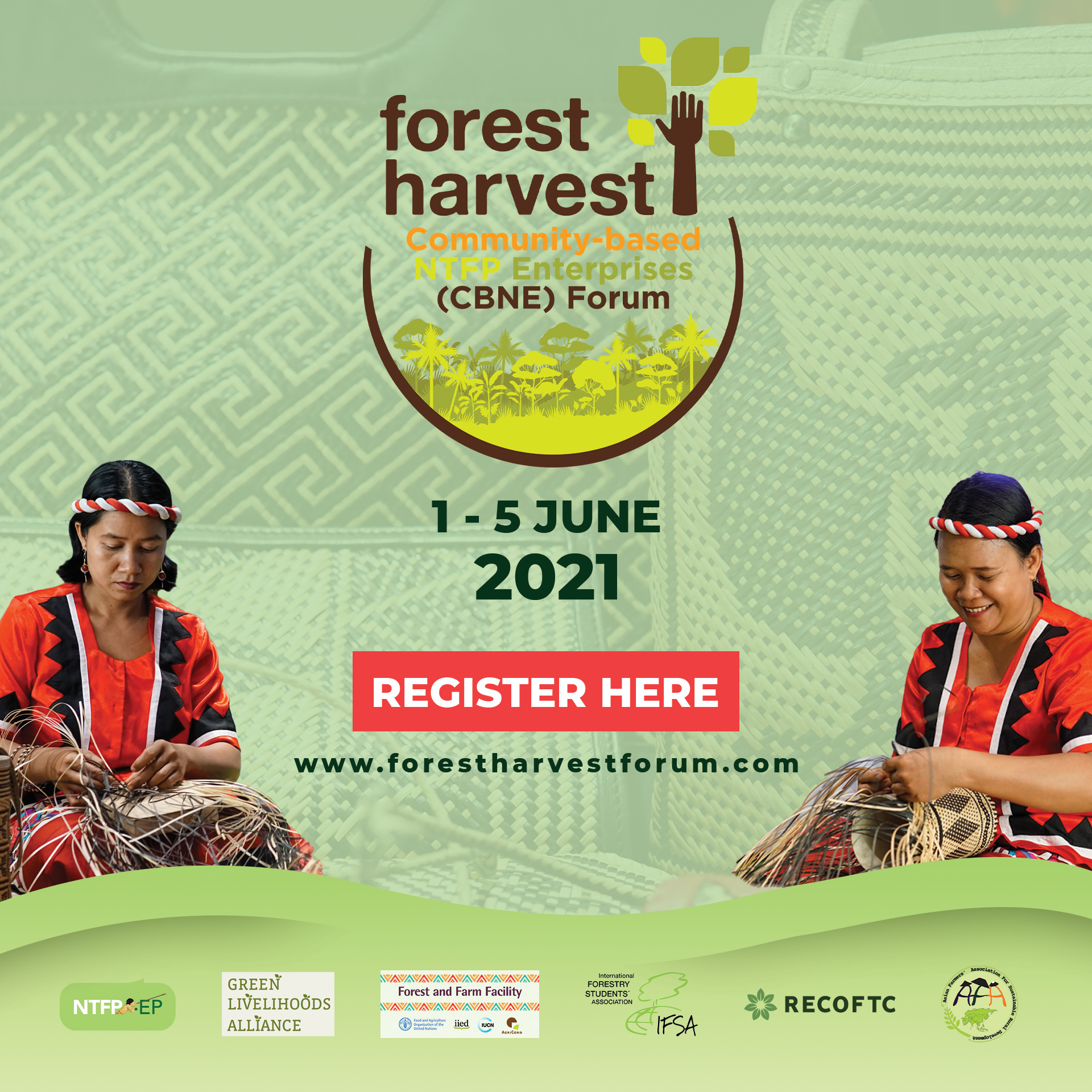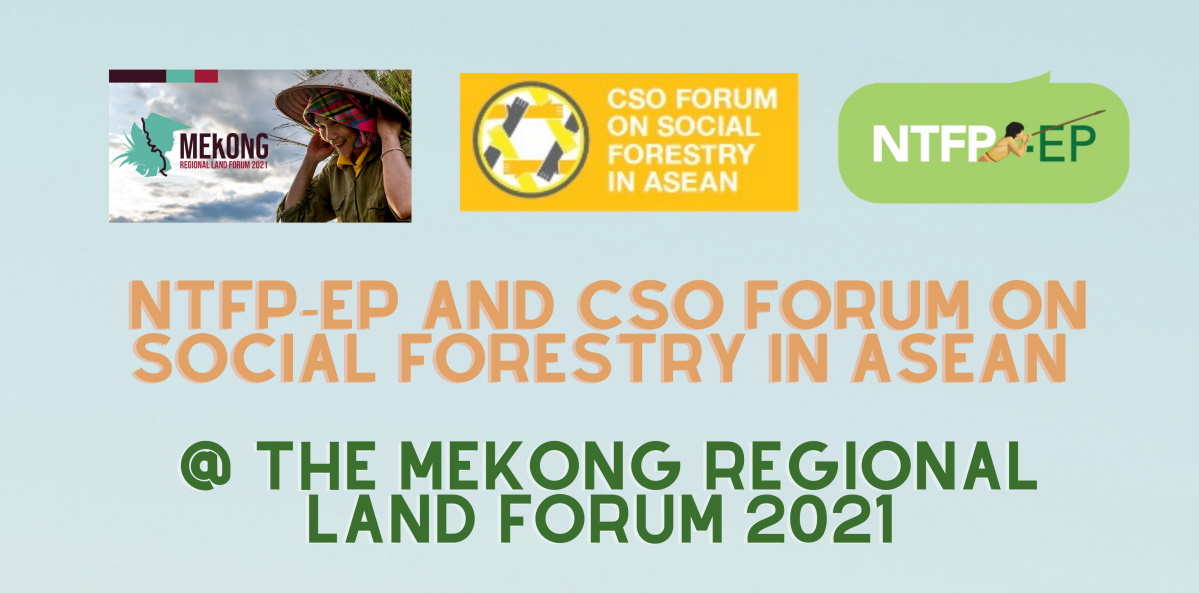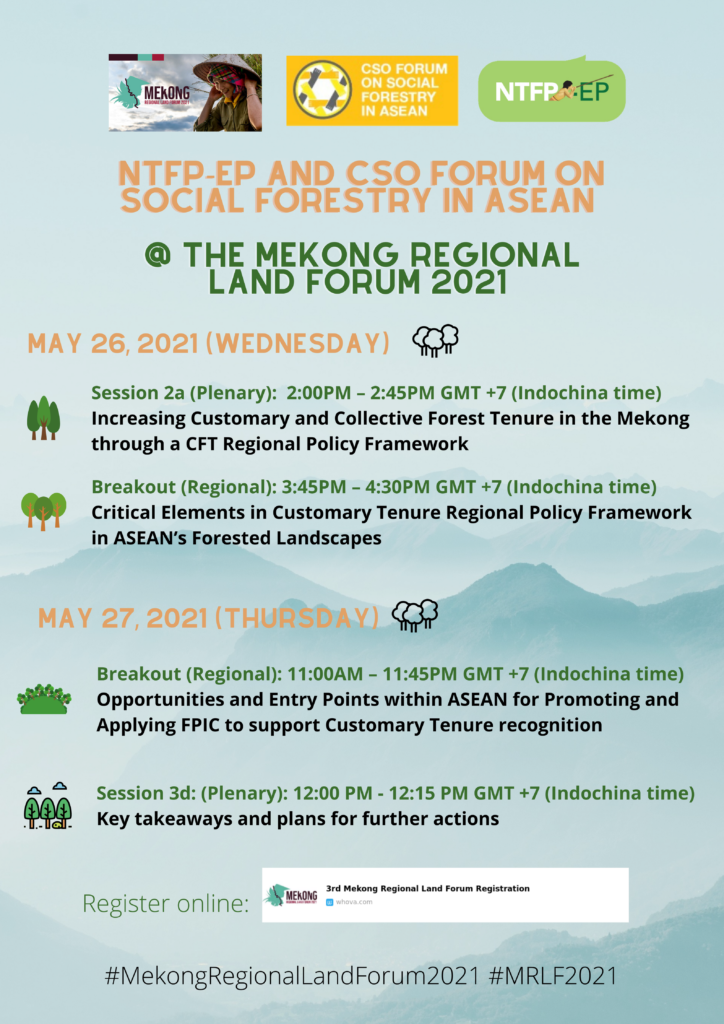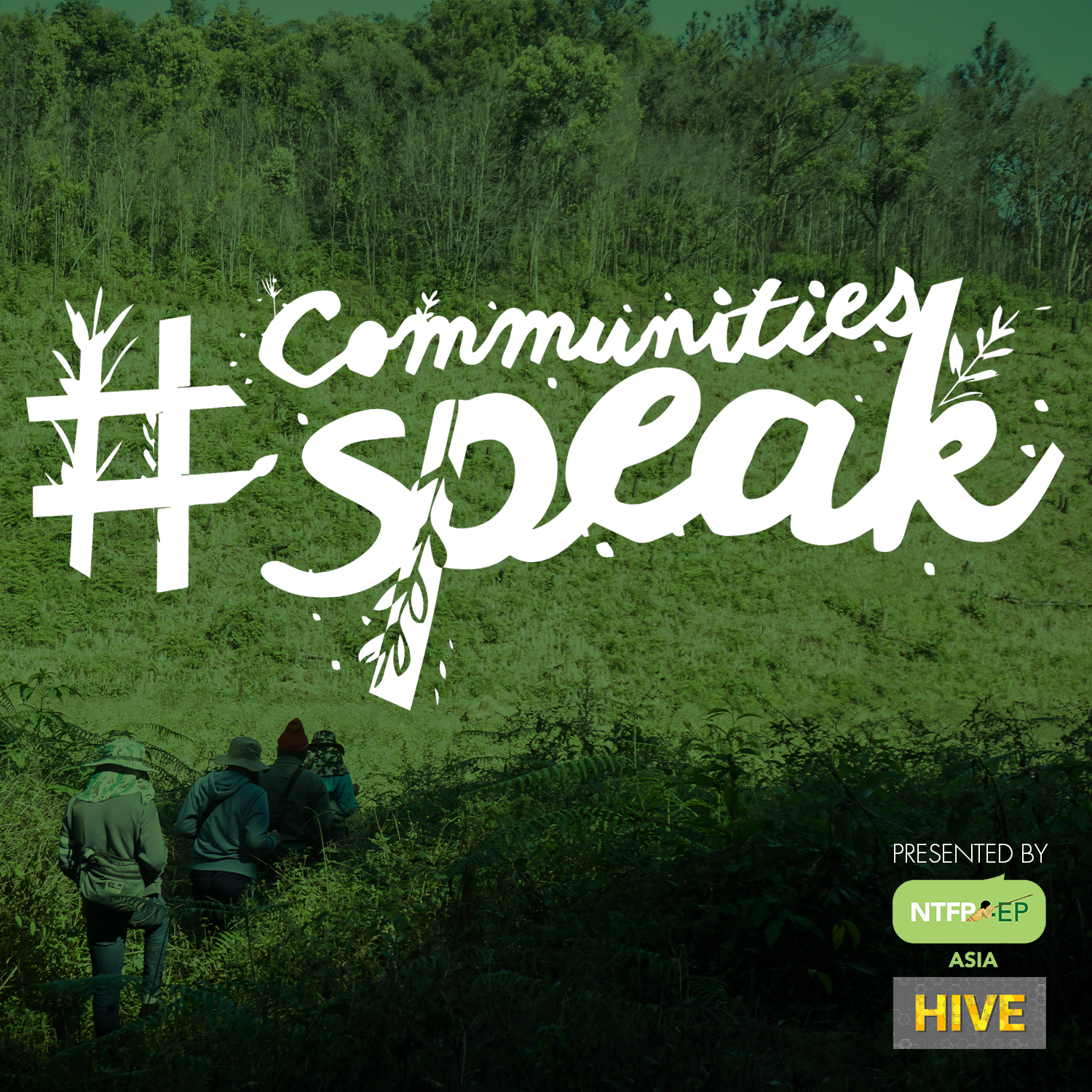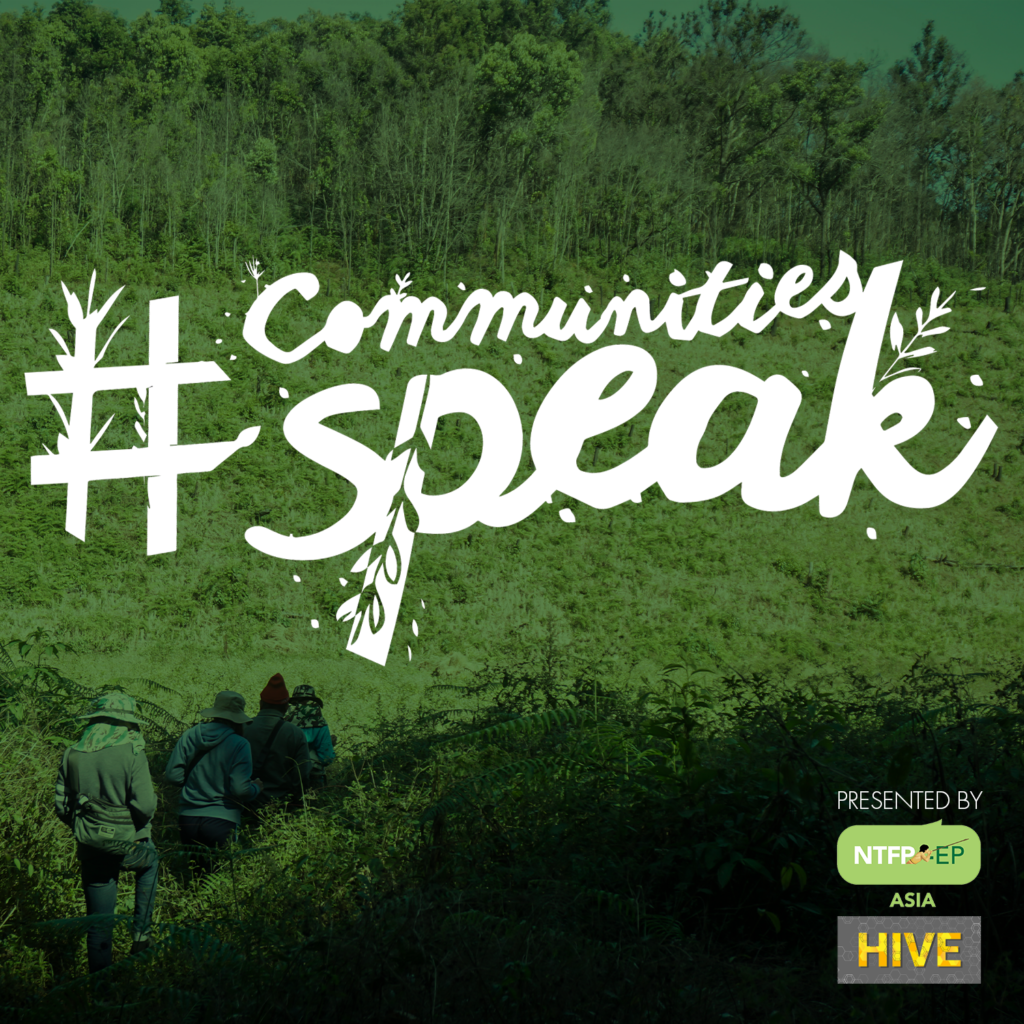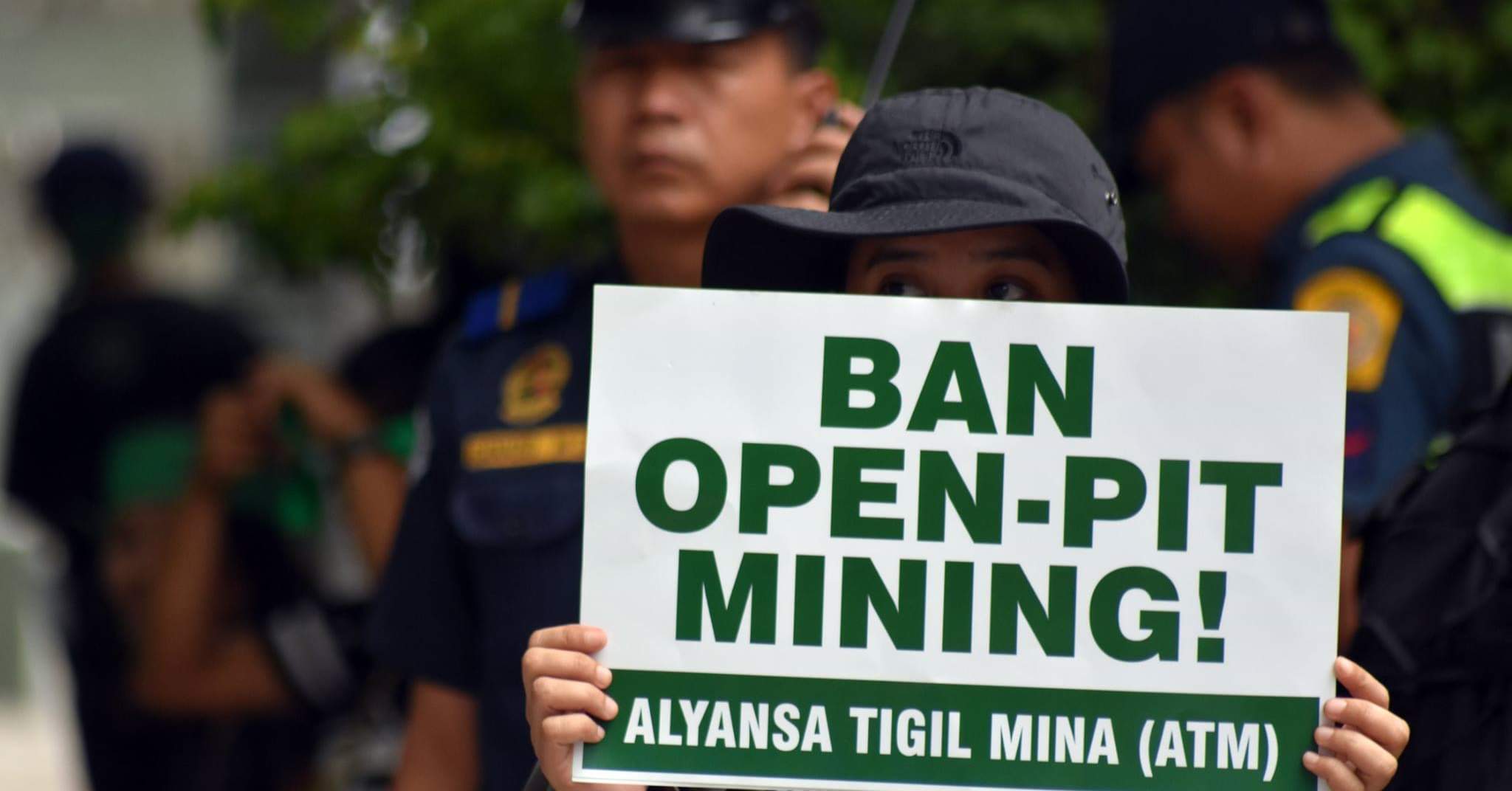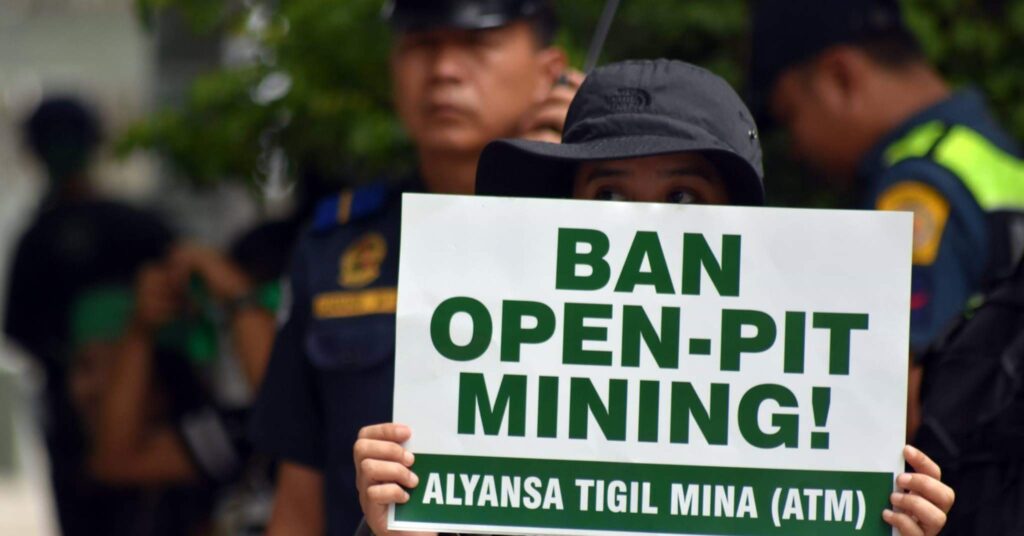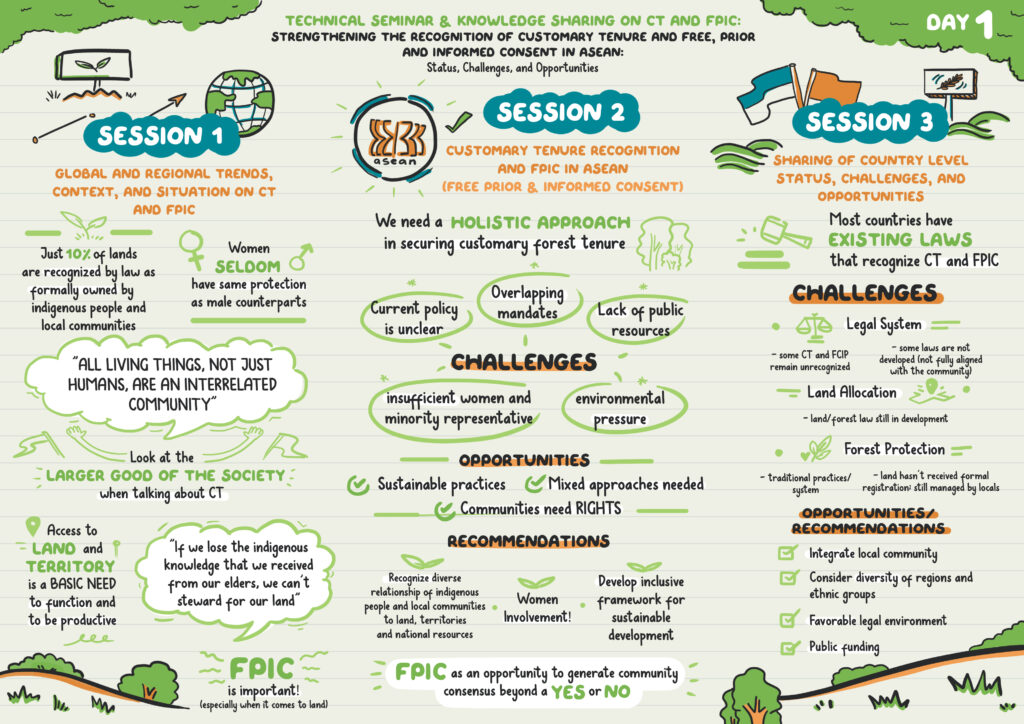
Forestry experts and representatives from indigenous peoples and local communities called for better regional and national policies related to Customary Forest Tenure (CT) and Free, Prior, and Informed Consent (FPIC) in the ASEAN region during a technical seminar and knowledge sharing event on CT and FPIC held last 11 November 2021.
Around 100 participants attended the event including ASEAN member state representatives, government officials, those from civil society organizations, indigenous people and local community representatives, development partners, as well as members of customary tenure alliances and regional bodies. With travel restrictions still in place in most countries, the event was held online via Zoom.
“More than ever, we should see this as an opportunity to maintain our goal, have more extensive sharing experiences, and learning without borders,” said Dr. Bambang Supriyanto, chair of the ASEAN Working Group on Social Forestry.
Dr. Dian Sukmajaya, senior officer of the ASEAN Food, Agriculture and Forestry Division, emphasized the key role of forests and sustainable forestry in ensuring carbon neutrality, promoting a circular economy and the role of forestry cooperation in nature-based solutions.
“Global leaders have underlined the need to reduce vulnerability, build resilience, enhance rural livelihoods, develop sustainable agriculture and recognize the multiple values of forests while also recognizing the rights of indigenous peoples and local communities,” said Sukmajaya in a keynote message.
The three sessions of the event focused on global and regional trends and context of CT and FPIC, the regional situation in ASEAN, and concluded with a sharing of the current situation within the countries.
Click here to watch the entire seminar on YouTube, which is also available in six ASEAN languages.
The first session featured Dr. Alain Frechette who highlighted the need to take efforts towards CT recognition and to capitalize on gains where rights are already recognized, Gam Shimray who provided insights on the challenges and potential conflicts when it comes to recognizing CT, and Mai Think Yu Mon who focused on how the youth can play a role in ensuring food security, land rights and resource access.
The second session featured Natalie Campbell’s presentation on the state of land and regional CT in the Mekong region and Atty. Edna Maguigad’s research on the state of regional and national policies related to CT and FPIC. Indigenous youth representative Josefa Tauli also provided short comments on how FPIC can also be considered an expression of self-determination and consensus building by indigenous communities.
In the third session, speakers from Cambodia, Laos, Myanmar, Thailand, Indonesia, Vietnam, Malaysia and the Philippines provided the current situations in their respective countries. Myanmar’s Naw Ei Ei Min provided a key message that despite the challenges, as long as communities are there to apply their customary practices, then the quest for CT recognition can still push on and prevail despite ongoing conflicts and instability.
“Indigenous peoples and local communities must be at the heart of the process,” said Femy Pinto, executive director of NTFP-EP Asia and the facilitator of the seminar.
“More than just participation and engagement, it’s a good message to say that having recognition on who these customary peoples are and what their practices are, we can have meaningful discussions moving forward,” Pinto added.
The event continued on to the next day, November 12, for a closed-door meeting of the AWG-SF members and partners on the draft zero outline of the ASEAN Guidelines on Customare Tenure Recognition in Forested Landscapes.
The seminar is only the first event and the first step of the process on developing the ASEAN Guidelines on Customary Forest Tenure Recognition which will continue in 2022. Participants and supporters are invited to look forward for future announcements for upcoming events, including those that may be held face-to-face for the first time in two years.

